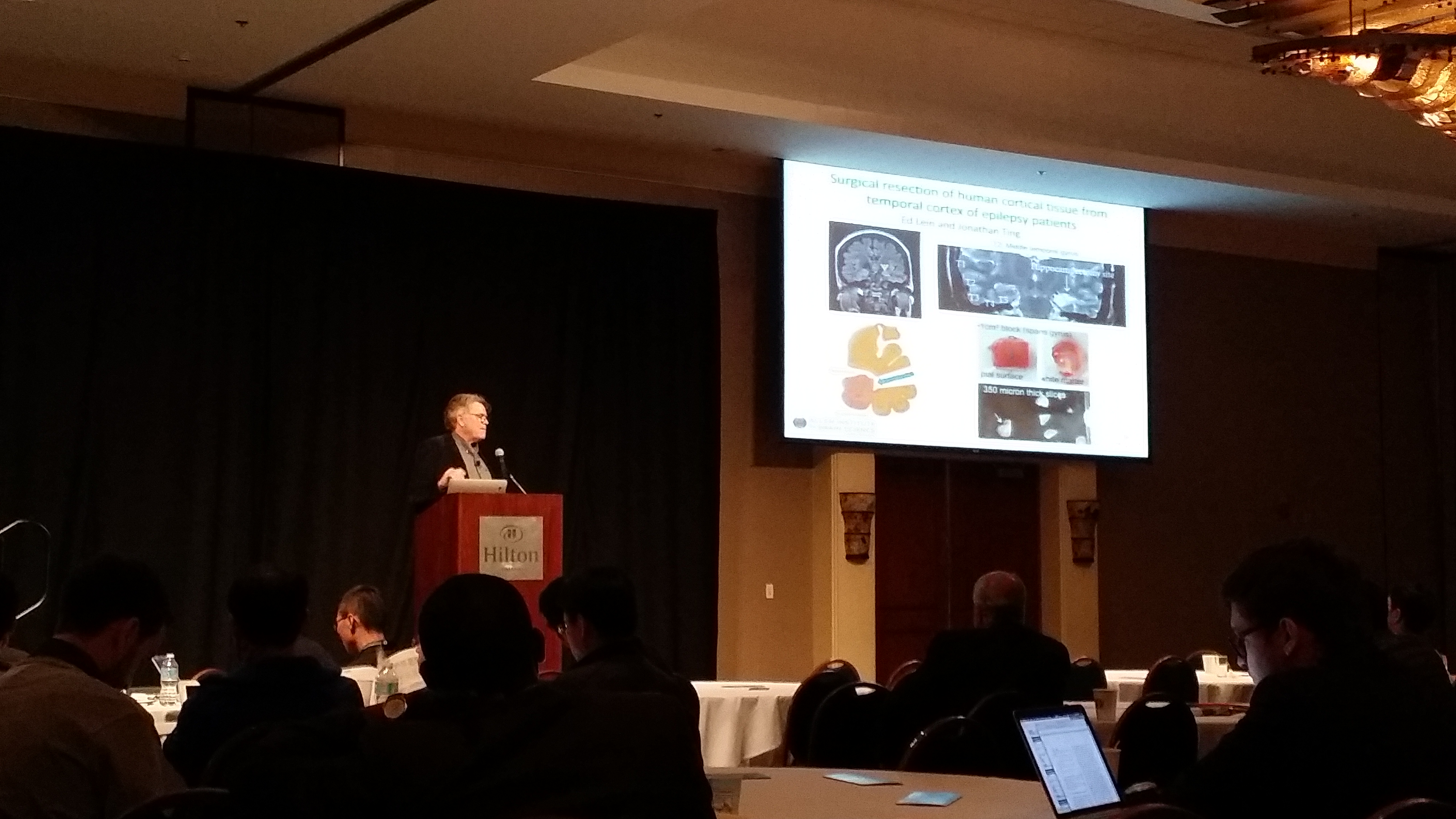Research talk 5 - A Computational Model and Theory of Cortex
Related paper: What must a global theory of cortex explain?
and video@youtube: What Should a Computational Theory of Cortex Explain?
This is a keynote from the Turing Award winner Leslie Valiant at WI2016. It’s really lucky and exciting to see the keynote from a giant in computer science domain, especially it’s about a very hot topic regarding the human intelligence! Actually this is a quite high level theory and requires a bunch of prerequisites in neural science domain. Though I cannot fully understand these contents, hopefully it may help inspire new idea in the future.
He notes that there are four basic model tasks that are supported by neural circuits and associated algorithms and each requires some circuit modification: memory allocation, association, supervised memorization, and inductive learning of threshold functions. The capacity of these circuits created for the cumulative efficacy of the many past acts. Thus the earlier acts of learning need to be retained without undue interference from the more recent ones.
A basic prerequisite for this endeavor is that of devising an appropriate model of computation that reflects the gross quantitative parameters of cortex. The goals of this revised model are shown below:
- Use neural model that underestimates the brain (don’t over interpret)
- Specify some challenging set of multiple task types.
- Show that these task types can be executed on the model.
- Show that sequences of thousands of interleaved tasks of these types can be supported without degradation of earliest
He mentioned a bunch of important concepts and hypotheses that underlie his computation theory, including positive representations, random access, the neuroidal model, and vicinal algorithms. Though these hypotheses have been proved somehow, they are not perfect. For example he mentioned that the Hierarchical Memorization mechanism is unstable, but the hippocampus can work as a stable memory allocator for cortex. Thus he proposed a theory of cortex with the mediation of hippocampus which may explain the memory mechanism.
